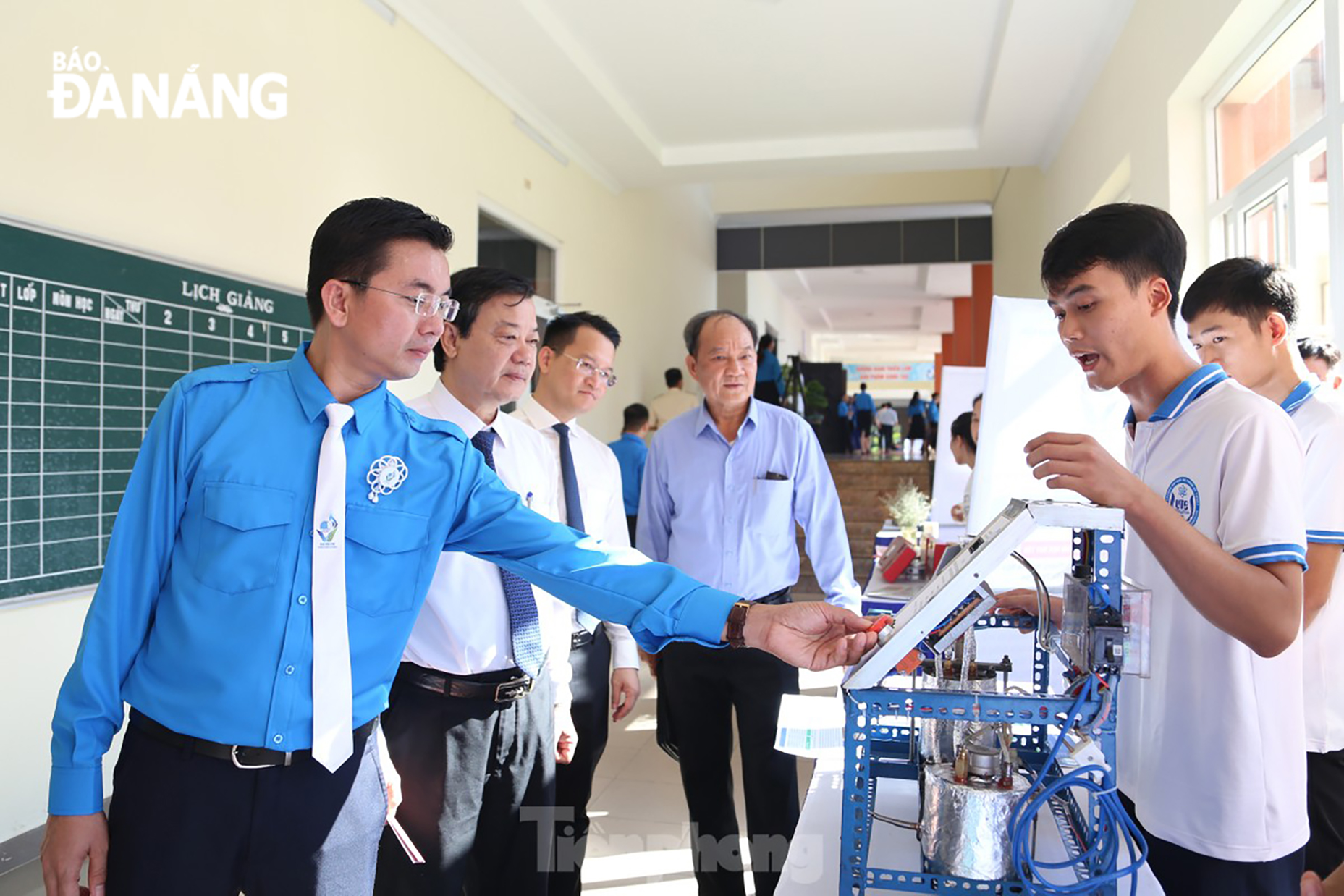Improving the quality of scientific criticism
Scientific criticism brings transparency and improves the quality of research projects. Thanks to serious and objective assessments, many research projects have been put into practice, benefiting the community.
 |
| The quality of science-based criticism contributes to improving the feasibility of scientific research projects among students. Photo: T.Y |
Collecting experts’ opinions
Improving the quality of scientific criticism requires attention to many different aspects. In particular, the criticism council must gather leading experts with expertise and social understanding to ensure that the opinions given not only reflect knowledge and current status, but also consider the feasibility of the research topic.
In Da Nang, scientific criticism and social criticism activities take place quite regularly, meeting the needs of the city’s economic and social development.
Every year, the Da Nang Union of Science and Technology Associations organises many seminars and conferences on scientific criticism with a focus on the fields of planning, architecture, construction, economics, environmental resources and key projects.
At the seminar on reviewing the quality of the pre-feasibility study on the project on relocating Da Nang Railway Station hosted by the Union of Science and Technology Associations in August 2024, experts analysed many important aspects such as urban planning, environmental protection, and ensuring the interests of the people.
Dr. Vo Cong Tri, Chairman of the municipal Union of Science and Technology Associations, commented that more than 20 opinions gathered at the seminar focused on such items as the need for investment and conditions for effective implementation of the abovementioned project.
In addition to the technical nature, design, investment form, capital sources, and capital recovery ability, experts requested that investors pay special attention to the relocation, resettlement, and resolution of arising social issues. In particular, ensuring the living environment and rights of people in the affected area is an important factor to avoid negative consequences during the implementation of the project.
Mr. Bui Hong Trung, Director of the municipal Department, highlighted the importance of the project in boosting the local socio-economic development, infrastructure, national defense and security.
To have a basis for accelerating the progress of the project, the Department has researched and identified necessary items and proposed a plan to separate the relocation of Da Nang railway station into two projects with appropriate scales, he added.
According to Mr. Trung, counter opinions not only help the unit add more scientific perspectives, but also contribute to removing technical and management problems that the project may encounter during implementation.
Transparency and professionalism
Many opinions say that, in order for scientific criticism to truly play a role in scientific research activities, it is necessary to rely on a transparent and professional management mechanism and accept differences in the debate process.
In addition, it is necessary to create conditions for experts to participate in many different fields, from planning, construction, environment, economy, culture, and society. This ensures diversity of perspectives on large, complex projects.
Along with that, the selection of a team of experts contributes significantly to the final results, minimising errors and filling gaps in research activities.
Assoc. Prof. Dr. Vo Van Minh, Principal of the University of Education (University of Danang), who has participated in many scientific seminars related to the fields of environmental resources and biodiversity, believes that a quality criticism team will help researchers minimise errors and find feasible directions.
According to Dr. Minh, transparency and professionalism in the counter-argument process are indispensable factors to ensure the quality of each project. The counter-argument team needs to work with an open spirit and be ready to discuss. In addition, to improve the quality of scientific criticism, it is indispensable to invest in information management systems and tools to support the evaluation process. In particular, modern review management software will make it easier to exchange and give feedback, while ensuring that no important opinions are overlooked.
As a unit that regularly organises criticism boards to contribute opinions to scientific research topics, the University of Da Nang is constantly improving the quality of criticism by experts.
Assoc. Prof. Dr. Nguyen Ngoc Vu, Director of the University of Da Nang, emphasised that scientific criticism plays an orienting role, helping researchers adjust and perfect their topics to suit practical requirements. In particular, the fields of planning, environment, technology and education have become the focus of recent sessions.
Sharing the same point, Dr. Vo Cong Tri affirmed that consulting, criticism and social appraisal are among the three important activities of the Union and the municipal People's Committee has assigned many important criticism workshops.
According to him, the Union gathers 32 member associations and 5 affiliated centres with nearly 160,000 members, including nearly 80 professors, associate professors and nearly 400 PhDs trained at prestigious educational institutions at home and abroad. Thanks to that, the quality of scientific criticism is increasingly improved, contributing to the overall social-economic development, especially in the context that Da Nang is striving to become one of the leading science and technology centres in Central Viet Nam.
Reporting by TIEU YEN - Translating by M.DUNG








